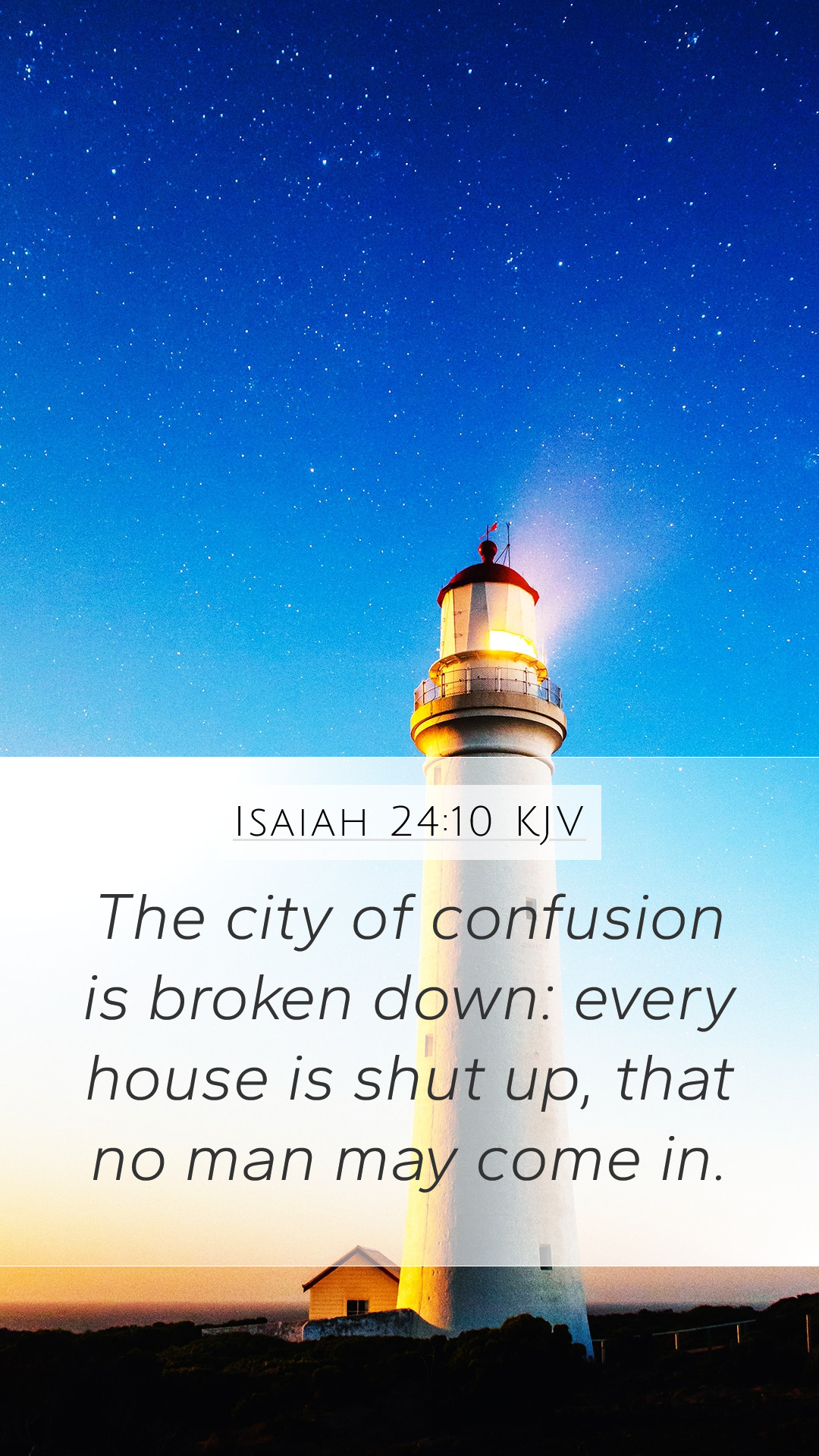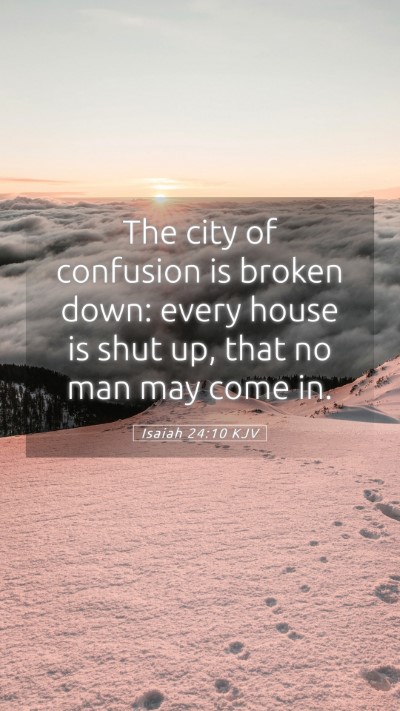Understanding Isaiah 24:10
Isaiah 24:10 reads: "The city of confusion is broken down: every house is shut up, that no man may come in." This verse captures a potent imagery of desolation and judgment. It serves as a grim reminder of the fate of those who oppose God and the resulting chaos that ensues within society. Through the lens of historical context and biblical prophecy, insights from various commentaries shed light on its comprehensive meaning.
Bible Verse Meanings and Interpretations
In the verse, "the city of confusion" symbolizes a once-thriving civilization that has now collapsed due to sin and disobedience to God's commandments. This image resonates with the prophecies concerning the final judgment and the fate of cities that defy divine laws.
-
Matthew Henry's Commentary: Henry emphasizes the moral decline leading to societal chaos. He notes that the "city" represents areas where iniquity reaches its peak, subsequently leading to divine retribution. The state of "confusion" is emblematic of the disorder that arises when nations turn away from faithful obedience.
-
Albert Barnes' Expositions: Barnes elaborates on the idea of desolation. He argues that the closing of the houses signifies isolation and the withdrawal of social cooperation, hinting at a time when prosperity is replaced rapidly with despondency. The absence of inhabitants in every house denotes a complete absence of community life—a powerful warning to nations.
-
Adam Clarke's Treatise: Clarke contextualizes this passage historically by associating it with impending judgments upon the nations, particularly in view of divine decrees. He illustrates that the total shutdown of habitation signals the consequences of turning away from God's guidance and moral principles.
Scripture Analysis
The verse’s implications extend beyond its immediate context; it suggests a broader theme of judgment throughout the scripture. It evokes significant biblical themes concerning the fate of nations, individual accountability, and the capricious nature of societal stability.
Significance of Isaiah 24:10 in Biblical Exegesis
Many interpret this passage as part of the greater prophetic context in Isaiah, which addresses both immediate and eschatological themes. Readers are encouraged to engage in Bible study insights that consider the historical context of the Babylonian exile and the ultimate restoration promised to God’s people.
-
Historical Context: The audience of Isaiah was facing the reality of impending threats from Assyria and Babylon. Understanding this background is essential for understanding Scripture deeply.
-
Prophetic Analysis: This verse also reflects the prophetic elements found in Isaiah,— a harbinger of the latter days and the final judgment where God will bring about justice and restore order from chaos.
Applying Isaiah 24:10 to Daily Life
This verse serves as a cautionary tale about the fragility of societal structures built on immorality. As we conduct Bible study together, or seek insights in online Bible study groups, we are reminded to self-reflect on the nature of our communities and our own choices. Are we building lives marked by faithfulness, or contributing to confusion and chaos?
Related Cross References
- Isaiah 1:7 - summarizes the desolation due to rebellion against God.
- Revelation 18:2 - describes the fall of Babylon as a city of confusion.
- Lamentations 1:1 - reflects on the sorrow of a city that has lost its inhabitants.
Conclusion
In conclusion, Isaiah 24:10 serves as a multifaceted verse with rich meanings. It encourages us to understand the serious implications of our actions and the importance of adhering to divine guidance. Engaging deeply with the verse promotes a better understanding of God’s character and our relationship with Him, which is essential for effective bible study lessons that resonate with everyday experiences.


